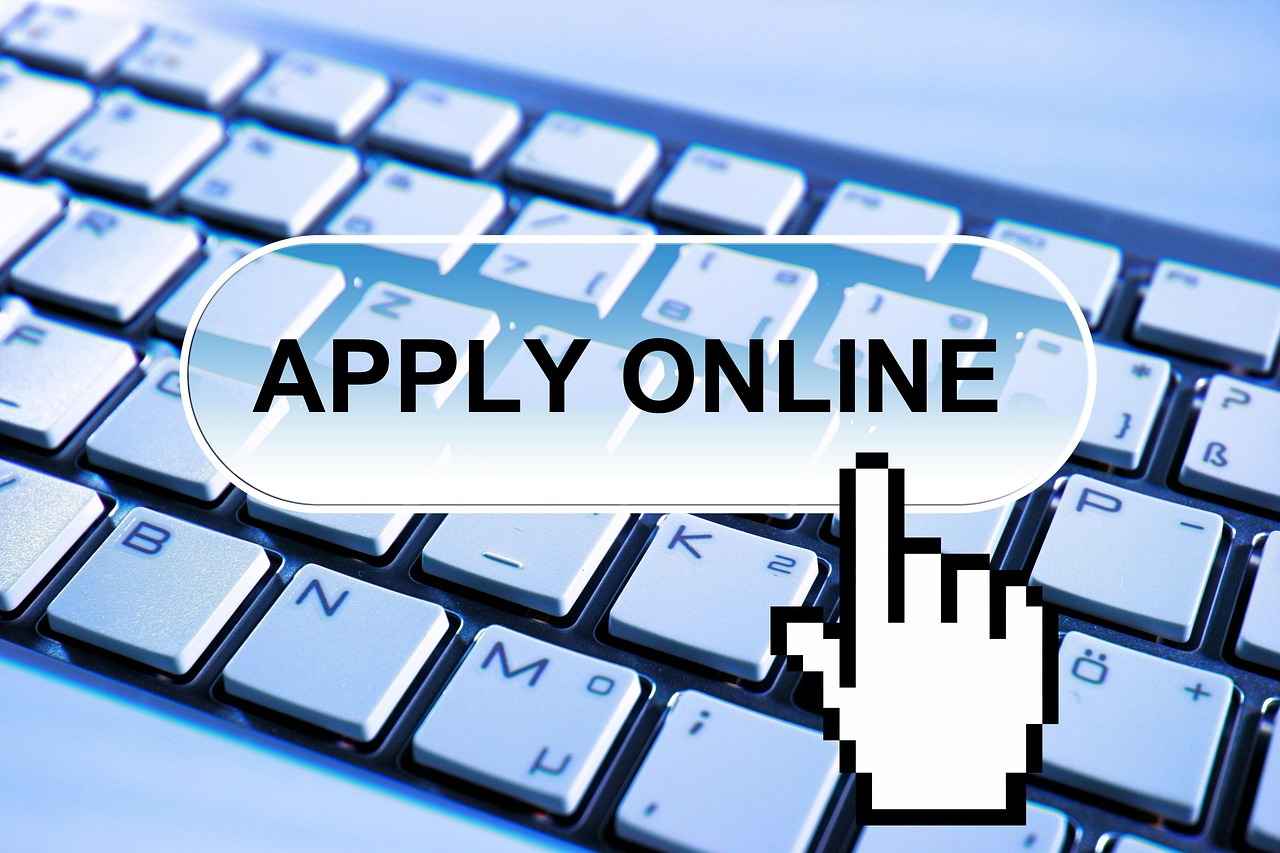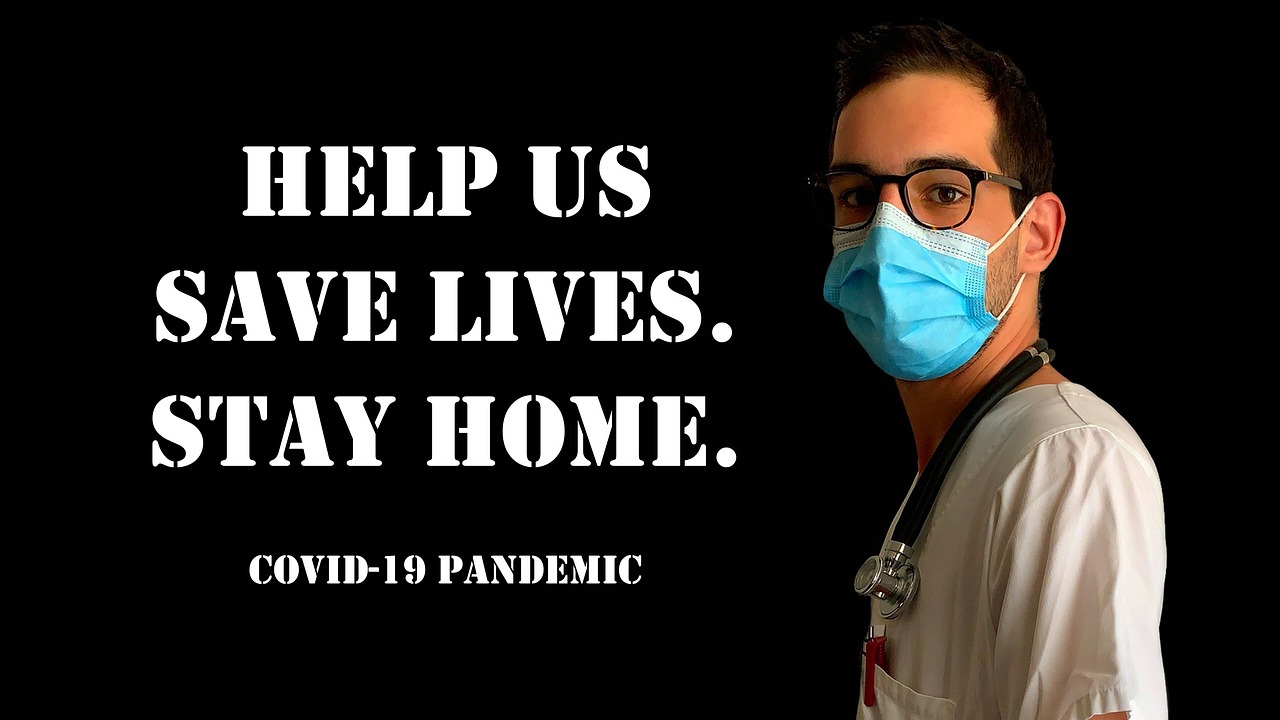This article explores a variety of part-time remote job opportunities within the healthcare sector. We will highlight different roles, their requirements, and the benefits associated with each position to assist you in finding the right fit for your career aspirations.
1. Telehealth Nurse
Telehealth nursing is an expanding field that allows registered nurses to provide patient care remotely. This role offers flexibility and the ability to work from home while assisting patients with their healthcare needs.
2. Medical Coder
Medical coders are essential in the healthcare industry, translating medical records into standardized codes. This ensures accurate billing and compliance, making it a suitable part-time remote job.
2.1 Skills Required
- Understanding coding systems like ICD-10 and CPT
- Attention to detail
- Familiarity with healthcare regulations
2.2 Certification Options
Obtaining certifications such as CPC or CCS can enhance job prospects for medical coders, demonstrating expertise and commitment to the field to potential employers.
3. Health Information Technician
Health information technicians manage and organize patient data, ensuring its accuracy and security. This is an ideal part-time remote job for detail-oriented individuals passionate about healthcare.
4. Medical Transcriptionist
Medical transcriptionists convert audio recordings from healthcare providers into written documents. This role provides vital support to medical teams while enjoying the flexibility of remote work.
5. Health Coach
Health coaches work with clients to promote wellness and healthy lifestyle choices, offering remote support tailored to individual needs, making it an appealing part-time job option.
6. Remote Medical Assistant
Remote medical assistants support healthcare providers by performing administrative tasks like scheduling appointments and managing patient records, allowing for part-time flexibility in the healthcare field.
7. Research Assistant
Research assistants in healthcare support clinical trials and studies, providing valuable insights while enjoying the flexibility of remote work, making it a fulfilling part-time opportunity.
8. Insurance Claims Specialist
Insurance claims specialists review and process claims submitted by healthcare providers, ensuring accuracy and compliance while working remotely, making it an accessible part-time job option.
9. Clinical Research Coordinator
Clinical research coordinators manage and oversee clinical trials, ensuring compliance with regulations and protocols while offering the flexibility of remote work, making it a rewarding part-time role.
10. Patient Care Advocate
Patient care advocates support individuals in navigating the healthcare system, providing guidance and assistance while enjoying the flexibility of remote work, making it an impactful part-time job.
11. Pharmacy Technician
Pharmacy technicians can work remotely in roles such as medication therapy management or telepharmacy, providing support to pharmacists while enjoying part-time flexibility in their schedules.
12. Conclusion: Exploring Remote Opportunities in Healthcare
The healthcare industry offers a diverse range of part-time remote job options, making it easier for individuals to find fulfilling roles that align with their skills and interests while maintaining a healthy work-life balance.

1. Telehealth Nurse
Telehealth nursing is rapidly becoming a vital component of the healthcare landscape, driven by advancements in technology and an increasing demand for accessible healthcare services. This innovative field enables registered nurses to deliver patient care remotely, which not only enhances patient convenience but also offers nurses the flexibility to work from home.
In the role of a telehealth nurse, professionals engage with patients through various digital platforms, providing consultations, monitoring health conditions, and offering education on managing chronic illnesses. This approach allows nurses to reach a broader patient demographic, including those in rural or underserved areas who may struggle to access traditional healthcare services.
Moreover, telehealth nursing is characterized by its flexibility. Nurses can often set their schedules, making it an ideal option for those seeking part-time work or balancing other commitments. The ability to work from home not only enhances job satisfaction but also reduces commuting time and expenses.
To succeed in this role, telehealth nurses must possess strong communication skills, as they need to convey information clearly and empathetically to patients through a screen. Additionally, proficiency in using telehealth technology and electronic health records (EHR) systems is essential for efficient patient management.
The demand for telehealth nurses is expected to grow significantly, especially in the wake of recent global health challenges that have highlighted the importance of remote healthcare solutions. As healthcare continues to evolve, telehealth nursing stands out as a promising career path for registered nurses looking to make a meaningful impact while enjoying the benefits of remote work.
In conclusion, telehealth nursing not only addresses the growing need for accessible healthcare but also offers registered nurses a unique opportunity to balance their professional and personal lives. With the right skills and technology, nurses can thrive in this dynamic and rewarding field.

2. Medical Coder
Medical coders are essential professionals in the healthcare industry, responsible for the crucial task of converting medical records into standardized codes. This process is vital for ensuring accurate billing, compliance with regulations, and facilitating smooth communication between healthcare providers and insurance companies. The role of a medical coder is not only significant but also offers the flexibility of a part-time remote job, making it an attractive option for many individuals seeking work-life balance.
2.1 Skills Required
- Attention to Detail: Precision is critical as even minor errors can lead to significant billing issues.
- Knowledge of Coding Systems: Familiarity with systems like ICD-10 and CPT is essential for success.
- Understanding Healthcare Regulations: Coders must stay updated on compliance requirements to avoid legal issues.
2.2 Certification Options
Obtaining certifications such as CPC (Certified Professional Coder) or CCS (Certified Coding Specialist) can greatly enhance job prospects. These certifications demonstrate a coder’s expertise and commitment to the field, making them more attractive to potential employers.
2.3 Tools and Software
Proficiency in coding software and electronic health records (EHR) systems is paramount for medical coders. These tools facilitate efficient coding practices and ensure that coders can work effectively in a remote environment.
2.4 Job Outlook
The demand for medical coders is projected to grow significantly in the coming years. This growth is driven by the increasing complexity of healthcare billing and the expansion of telemedicine services. As healthcare continues to evolve, the need for skilled coders will remain strong, providing stable job opportunities in this field.
In conclusion, becoming a medical coder presents a viable option for those looking to enter the healthcare industry with a flexible, part-time remote job. With the right skills and certifications, individuals can build a rewarding career while contributing to the efficiency and accuracy of healthcare systems.
2.1 Skills Required
Understanding the Skills Required for Medical Coders
In the ever-evolving landscape of healthcare, the role of a medical coder has become increasingly vital. These professionals are responsible for translating medical records into standardized codes, which are essential for billing and insurance purposes. To excel in this field, certain skills are paramount.
- Proficiency in Coding Systems: A deep understanding of coding systems such as ICD-10 (International Classification of Diseases) and CPT (Current Procedural Terminology) is crucial. These systems help ensure that healthcare providers are accurately reimbursed for their services.
- Attention to Detail: Medical coders must possess exceptional attention to detail. A small error in coding can lead to significant issues, including denied claims or even legal ramifications.
- Familiarity with Healthcare Regulations: Knowledge of healthcare laws and regulations, such as HIPAA (Health Insurance Portability and Accountability Act), is essential to ensure compliance and protect patient information.
- Analytical Skills: The ability to analyze medical documentation and extract relevant information for coding is a vital skill that enhances accuracy and efficiency.
- Technical Skills: Familiarity with various coding software and electronic health records (EHR) systems is important. Proficiency in these tools allows for efficient coding practices, especially in a remote work environment.
- Communication Skills: Effective communication with healthcare providers and staff is necessary to clarify any ambiguities in medical records, ensuring that coding is accurate.
In summary, the role of a medical coder is multifaceted, requiring a blend of technical knowledge, analytical abilities, and strong communication skills. By honing these skills, aspiring coders can position themselves for success in this rewarding field.
2.1.1 Certification Options
Certification Options for Medical Coders
In the ever-evolving landscape of healthcare, obtaining relevant certifications is crucial for medical coders looking to enhance their job prospects. Certifications like the Certified Professional Coder (CPC) and Certified Coding Specialist (CCS) not only validate a coder’s skills but also demonstrate a strong commitment to the profession. These credentials can significantly differentiate candidates in a competitive job market.
1. Benefits of Certification
- Increased Job Opportunities: Many employers prefer or require certifications, making it easier for certified coders to secure positions.
- Higher Earning Potential: Certified professionals often command higher salaries compared to their non-certified counterparts.
- Professional Recognition: Certifications can enhance a coder’s credibility and reputation within the healthcare community.
2. Overview of Popular Certifications
| Certification | Issuing Organization | Focus Area |
|---|---|---|
| CPC | AAPC | Professional coding in outpatient settings |
| CCS | AHIMA | Inpatient coding and healthcare data management |
| CCS-P | AHIMA | Professional coding in outpatient settings |
3. Preparing for Certification Exams
To successfully obtain these certifications, candidates should consider enrolling in preparatory courses that cover essential coding guidelines, healthcare regulations, and practical coding exercises. Additionally, utilizing study materials such as practice exams and coding manuals can greatly enhance one’s understanding and readiness for the certification tests.
Conclusion
In summary, pursuing certifications like the CPC or CCS is a strategic move for medical coders aiming to advance their careers. These credentials not only showcase expertise but also reflect a commitment to maintaining high standards in the coding profession.
2.1.2 Tools and Software
In today’s rapidly evolving healthcare landscape, the role of a medical coder has become increasingly vital. One of the key components of this profession is the effective use of coding software and electronic health records (EHR) systems. Familiarity with these tools not only enhances coding accuracy but also streamlines workflows, especially in a remote environment.
Medical coders are responsible for translating complex medical data into standardized codes, which are essential for billing and insurance purposes. To perform this task efficiently, they rely on specialized coding software that helps automate the coding process, reducing the likelihood of errors. Popular coding software options include:
- 3M CodeFinder Software – Known for its comprehensive coding tools and resources.
- Optum360 EncoderPro.com – Offers a user-friendly interface and extensive coding databases.
- TruCode Encoder – Integrates seamlessly with EHR systems to enhance coding accuracy.
In addition to coding software, electronic health records (EHR) systems play a crucial role in a medical coder’s daily tasks. These systems store patient information and medical histories, allowing coders to access the necessary data quickly. Some widely used EHR systems include:
- Epic – A leading EHR provider known for its comprehensive features.
- Cerner – Offers robust solutions for healthcare organizations of all sizes.
- Allscripts – Known for its interoperability and user-friendly design.
As the demand for remote medical coding continues to grow, proficiency in these tools and software is essential for success. Not only do they facilitate accurate coding practices, but they also enable coders to work efficiently from virtually anywhere. Staying updated with the latest software advancements and EHR systems will further enhance a coder’s career prospects in this dynamic field.
2.2 Job Outlook
The demand for medical coders is projected to experience significant growth in the coming years. This surge is primarily driven by the increasing complexity of healthcare billing and the rapid expansion of telemedicine services. As healthcare systems evolve, the need for accurate coding becomes more critical, ensuring that healthcare providers are reimbursed appropriately and that patients are billed correctly.
One of the key factors contributing to this demand is the ongoing shift towards value-based care. As healthcare providers focus on improving patient outcomes, they require precise coding to reflect the services provided accurately. This transition necessitates skilled medical coders who can navigate the intricate coding systems and regulations.
Furthermore, the rise of telemedicine has introduced new challenges and opportunities in medical coding. As more healthcare services are delivered remotely, coders must adapt to coding for virtual visits, remote monitoring, and other telehealth services. This adaptation requires a deep understanding of both traditional coding practices and the nuances of telehealth.
According to the U.S. Bureau of Labor Statistics, employment for medical coders is expected to grow by 8% from 2020 to 2030, which is faster than the average for all occupations. This growth is indicative of the increasing reliance on medical coders in various healthcare settings, including hospitals, clinics, and insurance companies.
In conclusion, the job outlook for medical coders is promising, with ample opportunities for those entering the field. As healthcare continues to evolve, the role of medical coders will remain vital in ensuring accurate billing and compliance, making it an excellent career choice for individuals seeking part-time remote work in the healthcare industry.

3. Health Information Technician
Health Information Technicians play a critical role in the healthcare system, managing and organizing patient data with a focus on accuracy and security. This position is particularly suited for detail-oriented individuals who have a passion for healthcare and are looking for a part-time remote job that offers flexibility and the chance to make a meaningful impact.
Health information technicians have a variety of responsibilities that are essential for the smooth operation of healthcare facilities. Their key tasks include:
- Maintaining Patient Records: Ensuring that all patient information is up-to-date and correctly documented.
- Ensuring Compliance: Adhering to healthcare regulations and standards to protect patient privacy and data integrity.
- Collaboration: Working with healthcare professionals to enhance data management processes and improve patient care.
To become a health information technician, candidates typically need:
- A degree in Health Information Management or a related field.
- Relevant certifications, such as Registered Health Information Technician (RHIT) or Certified Coding Specialist (CCS), to boost career opportunities.
Successful health information technicians possess a unique set of skills, including:
- Attention to Detail: Precision is crucial in managing patient data.
- Analytical Skills: The ability to analyze data for trends and discrepancies.
- Technical Proficiency: Familiarity with electronic health records (EHR) and coding software.
The demand for health information technicians is expected to grow as healthcare systems increasingly rely on electronic records and data management. This growth presents numerous opportunities for individuals seeking flexible, part-time remote work in a vital industry.
In conclusion, health information technicians are essential in ensuring the accuracy and security of patient data, making this role not only rewarding but also a promising career path for those interested in the healthcare field.
3.1 Responsibilities
Key Responsibilities of Health Information Technicians
Health information technicians play a critical role in the healthcare industry, ensuring that patient data is accurately recorded, maintained, and secured. Their responsibilities extend beyond mere data entry, encompassing a range of tasks that contribute to the overall efficiency and compliance of healthcare operations.
- Maintaining Patient Records: One of the primary duties is to organize and manage patient records. This includes updating information, ensuring that all data is complete and accurate, and safeguarding sensitive information against unauthorized access.
- Ensuring Compliance with Regulations: Health information technicians must stay informed about healthcare regulations such as HIPAA (Health Insurance Portability and Accountability Act). They are responsible for implementing policies that ensure compliance and protect patient privacy.
- Collaboration with Healthcare Professionals: Effective communication is essential. Technicians often collaborate with doctors, nurses, and administrative staff to streamline data management processes and improve overall patient care.
- Data Analysis: In addition to managing records, technicians may analyze health data to identify trends and improve healthcare outcomes. They play a role in reporting and interpreting data to support clinical decisions.
- Training Staff: Health information technicians may also be involved in training new staff on the proper handling of patient records and compliance protocols, ensuring that the entire team adheres to best practices.
These responsibilities highlight the importance of health information technicians in maintaining the integrity and security of patient data within the healthcare system. Their work not only supports healthcare providers but also enhances the patient experience by ensuring that accurate information is readily available when needed.
3.2 Educational Requirements
To pursue a career as a health information technician, a degree in health information management or a related field is typically necessary. This educational background provides the foundational knowledge required to excel in managing patient data and understanding healthcare systems. Many programs offer specialized courses that cover topics such as medical coding, data analysis, and healthcare laws, which are crucial for success in this field.
In addition to formal education, obtaining relevant certifications can significantly enhance career opportunities for health information technicians. Certifications such as the Registered Health Information Technician (RHIT) or Certified Coding Specialist (CCS) demonstrate a professional’s expertise and commitment to the field, making them more attractive to potential employers.
Furthermore, aspiring technicians should consider engaging in internships or practical training during their studies. This hands-on experience is invaluable, allowing individuals to apply theoretical knowledge in real-world settings and gain insights into the day-to-day responsibilities of health information management.
Continued education is also essential in this rapidly evolving field. Health information technicians are encouraged to stay updated on the latest healthcare regulations, technological advancements, and coding standards. Attending workshops, webinars, and industry conferences can help professionals maintain their knowledge and skills, ensuring they remain competitive in the job market.
In summary, a combination of formal education, relevant certifications, and practical experience is crucial for anyone aspiring to become a successful health information technician. This multifaceted approach not only prepares individuals for the challenges of the role but also opens doors to various career advancement opportunities in the healthcare sector.

4. Medical Transcriptionist
Medical transcriptionists play a crucial role in the healthcare industry by converting audio recordings from healthcare providers into written documents. This process not only ensures accurate patient records but also supports medical teams in delivering high-quality care. With the rise of telehealth and remote work, this profession has become increasingly attractive, allowing individuals to work from the comfort of their homes while contributing to essential healthcare services.
4.1 Essential Skills
- Strong Typing Skills: A medical transcriptionist must possess excellent typing skills to efficiently transcribe audio recordings.
- Attention to Detail: Precision is key in this role, as even minor errors can lead to significant consequences in patient care.
- Medical Terminology Knowledge: Familiarity with medical terminology and healthcare practices is essential for understanding the content of recordings.
4.2 Career Advancement
With experience, medical transcriptionists have opportunities to advance to roles such as quality assurance editors or trainers. These positions not only enhance career prospects but also increase earning potential. Additionally, some transcriptionists choose to specialize in certain medical fields, further broadening their expertise and marketability.
4.3 Work Environment
The flexibility of remote work is a significant benefit for medical transcriptionists. They can often set their own schedules, allowing for a better work-life balance. This adaptability makes it an appealing choice for those seeking part-time employment or a career that fits around other commitments.
4.4 Conclusion
In conclusion, the role of a medical transcriptionist is vital in the healthcare industry, providing essential support while allowing for a flexible work environment. As healthcare continues to evolve, the demand for skilled transcriptionists is expected to grow, making it a promising career choice for individuals interested in healthcare and remote work opportunities.
4.1 Essential Skills
Success as a medical transcriptionist in a remote setting relies heavily on a combination of essential skills that ensure accuracy and efficiency in the transcription process. Below are key skills that aspiring medical transcriptionists should develop:
- Strong Typing Skills: Proficient typing skills are fundamental for medical transcriptionists. The ability to type quickly and accurately allows for efficient conversion of audio recordings into written documents. Many employers seek candidates who can type at least 60 words per minute with minimal errors.
- Attention to Detail: Medical transcriptionists must possess a keen eye for detail. This skill is crucial for identifying and correcting errors in transcriptions, ensuring that the final documents are free from mistakes that could lead to misunderstandings in patient care.
- Understanding of Medical Terminology: A solid grasp of medical terminology is essential. Transcriptionists need to be familiar with various medical terms, abbreviations, and procedures to accurately transcribe audio recordings from healthcare providers.
- Listening Skills: Excellent listening skills are necessary for accurately interpreting audio recordings. Medical transcriptionists must be able to understand different accents and dialects, as well as varying audio qualities.
- Familiarity with Transcription Software: Proficiency in using transcription software and tools is important. Knowledge of speech recognition software can also enhance productivity and accuracy in the transcription process.
- Time Management: Effective time management skills are vital for meeting deadlines. Remote medical transcriptionists often work on multiple projects simultaneously and must prioritize tasks to ensure timely delivery.
By honing these skills, medical transcriptionists can improve their performance and increase their value in the healthcare industry, making them indispensable in supporting medical teams remotely.
4.2 Career Advancement
As the healthcare industry continues to evolve, career advancement opportunities for medical transcriptionists are becoming increasingly prominent. With the right experience and skills, professionals in this field can transition into various roles that enhance their career prospects and earning potential.
One of the most common paths for medical transcriptionists is to become a quality assurance editor. In this role, individuals are responsible for reviewing and editing transcripts to ensure accuracy and adherence to industry standards. This position not only requires a deep understanding of medical terminology but also strong attention to detail and an ability to provide constructive feedback to peers. By taking on this role, transcriptionists can significantly increase their value within a healthcare organization.
Another avenue for advancement is becoming a trainer for new medical transcriptionists. Experienced professionals can leverage their knowledge and skills to educate newcomers about the intricacies of the job, including best practices for transcription, effective use of technology, and understanding medical documentation. This role not only allows seasoned transcriptionists to share their expertise but also positions them as leaders within their organizations.
Moreover, pursuing further education and certifications can open even more doors. For instance, obtaining certifications in specialized areas of medical transcription can lead to roles in niche markets, such as legal transcription or transcription for specific medical fields like radiology or surgery. This specialization can set a transcriptionist apart from their peers and lead to higher pay and more job security.
In conclusion, medical transcriptionists have numerous opportunities for career advancement. By gaining experience, pursuing additional training, and moving into roles like quality assurance editor or trainer, they can enhance their career trajectory and achieve greater financial rewards in the healthcare sector.

5. Health Coach
In today’s fast-paced world, the role of a health coach has become increasingly significant. Health coaches are professionals who work closely with clients to promote wellness and encourage healthy lifestyle choices. They provide personalized support and guidance, often through remote platforms, making this profession an attractive part-time job option for many.
Health coaches focus on helping individuals achieve their health goals by creating tailored plans that address their unique needs. This can include aspects such as nutrition, exercise, stress management, and overall well-being. By offering remote support, health coaches can reach clients from diverse backgrounds, ensuring that quality health guidance is accessible to all.
| Key Responsibilities | Skills Required |
|---|---|
| Conducting assessments to understand client needs | Strong communication skills |
| Developing personalized wellness plans | Empathy and active listening |
| Providing ongoing support and motivation | Knowledge of health and nutrition |
5.1 Certification and Training
While formal education is not always mandatory, obtaining certification from reputable organizations can significantly enhance a health coach’s credibility. Certifications such as the National Board for Health and Wellness Coaching (NBHWC) or programs from the American Council on Exercise (ACE) are well-regarded in the industry. These certifications not only validate a coach’s expertise but also help in attracting clients in a competitive market.
5.2 Client Management
Effective communication and relationship-building skills are crucial for health coaches. They must be able to establish trust and rapport with clients to facilitate open and honest discussions about health challenges. Utilizing technology, such as video calls and health tracking apps, can enhance the coaching experience, allowing for real-time feedback and adjustments to wellness plans.
In conclusion, becoming a health coach offers a fulfilling opportunity to impact others’ lives positively. With the flexibility of remote work and the ability to tailor guidance to individual needs, this profession stands out as a rewarding part-time job option in the healthcare industry.
5.1 Certification and Training
In the health coaching industry, while formal education is not a strict requirement, pursuing certification from reputable organizations can significantly enhance your professional credibility. This is particularly important in a competitive market where clients are increasingly discerning about the qualifications of their health coaches.
Certification serves as a validation of your skills and knowledge, making you more attractive to potential clients. Many individuals seek health coaches who have undergone formal training and have credentials from recognized institutions. This not only boosts your credibility but also instills trust in your clients, who are looking for guidance in their health journeys.
Some of the most reputable organizations offering health coaching certifications include:
- National Society of Health Coaches (NSHC)
- American Council on Exercise (ACE)
- International Coach Federation (ICF)
- Wellcoaches School of Coaching
These programs typically cover essential topics such as nutrition, exercise science, behavior change, and coaching techniques. Completing a certification program not only equips you with the necessary skills but also helps you build a professional network that can lead to referrals and job opportunities.
Moreover, many certifications require continuing education to maintain your status, which encourages ongoing learning and professional development. This commitment to growth can further distinguish you from competitors who may not prioritize such standards.
In conclusion, while it is possible to enter the health coaching field without formal education, obtaining certification is a strategic move that can enhance your marketability and effectiveness as a coach. It demonstrates your dedication to the profession and your clients’ well-being, ultimately leading to greater success in your health coaching career.
5.2 Client Management
Effective communication and relationship-building skills are essential for health coaches, especially when managing clients remotely. In today’s digital age, where personal interactions are often limited, the ability to connect with clients through various communication channels becomes paramount. Health coaches must cultivate a strong rapport with their clients to foster trust and motivation, which are vital for achieving health goals.
To begin with, health coaches should utilize active listening techniques. This involves not only hearing what clients say but also understanding their emotions and concerns. By demonstrating empathy and validating clients’ feelings, coaches can create a safe space where clients feel comfortable sharing their challenges and aspirations.
Moreover, employing clear and concise communication is crucial. Health coaches should articulate their advice and suggestions in an easily understandable manner. This includes breaking down complex health information into manageable parts and using relatable examples. Utilizing visual aids, such as charts or infographics, can also enhance understanding and retention of information.
Additionally, consistent follow-ups play a significant role in remote client management. Coaches should establish regular check-ins through video calls, phone calls, or messaging platforms. These interactions not only help in tracking progress but also reinforce accountability and commitment to the health journey.
Furthermore, leveraging technology can enhance the coaching experience. Utilizing apps for tracking goals, sharing resources, and facilitating communication can streamline the process and keep clients engaged. This integration of technology ensures that clients have access to support whenever they need it, thereby strengthening the coach-client relationship.
In conclusion, successful health coaching in a remote environment hinges on effective communication and relationship-building skills. By actively listening, communicating clearly, maintaining consistent follow-ups, and leveraging technology, health coaches can significantly impact their clients’ ability to achieve their health goals. These strategies not only enhance client satisfaction but also contribute to long-term success in their wellness journeys.

6. Remote Medical Assistant
Remote medical assistants play a vital role in the healthcare industry, offering essential support to healthcare providers by managing various administrative tasks. These tasks include scheduling appointments, managing patient records, and facilitating communication between patients and medical professionals. By handling these responsibilities, remote medical assistants allow healthcare providers to focus more on patient care, ultimately enhancing the overall efficiency of healthcare services.
6.1 Duties and Responsibilities
- Patient Communication: Remote medical assistants often serve as the first point of contact for patients, addressing inquiries and providing information about services.
- Data Entry: Accurate data entry is crucial for maintaining patient records and ensuring that all information is up-to-date and compliant with healthcare regulations.
- Telehealth Support: Assisting with telehealth appointments, including scheduling and technical support, is an essential part of the role.
6.2 Skills Needed
- Organizational Skills: The ability to manage multiple tasks efficiently is vital for success in this role.
- Proficiency in Office Software: Familiarity with software such as Microsoft Office and healthcare management systems is essential.
- Understanding of Medical Terminology: A basic knowledge of medical terms enables better communication with healthcare providers and patients.
6.3 Work Environment
Remote medical assistants typically work from home, offering flexibility in their schedules. This arrangement allows for a better work-life balance, making it an attractive option for those seeking part-time employment in healthcare.
Conclusion
As the demand for healthcare services continues to grow, the role of remote medical assistants is becoming increasingly important. This position not only supports healthcare providers but also offers individuals the chance to contribute meaningfully to the healthcare system while enjoying the benefits of remote work.
6.1 Duties and Responsibilities
As a remote medical assistant, your role is pivotal in ensuring the smooth operation of healthcare services, particularly in a remote setting. The key duties associated with this position are diverse and require a blend of technical skills and interpersonal communication.
- Patient Communication: Engaging with patients is fundamental. You will be responsible for answering queries, addressing concerns, and providing essential information regarding appointments and procedures. This role demands excellent communication skills to ensure patients feel supported and informed.
- Data Entry: Accurate data entry is crucial in maintaining patient records. You will input and update patient information in electronic health records (EHR) systems, ensuring that data is current and compliant with healthcare regulations.
- Assisting with Telehealth Appointments: In the era of digital health, assisting healthcare providers during telehealth appointments is a vital responsibility. This may include setting up virtual consultations, ensuring technology functions smoothly, and coordinating follow-up care.
- Scheduling Appointments: You will manage the scheduling of patient appointments, balancing the availability of healthcare providers and the needs of patients to optimize workflow.
- Insurance Verification: Understanding insurance processes is essential. You will verify patient insurance details to facilitate billing and ensure that patients are aware of their coverage options.
- Collaboration with Healthcare Teams: Working remotely does not mean working in isolation. You will collaborate with other healthcare professionals to streamline processes and enhance patient care, ensuring a cohesive approach to healthcare delivery.
In summary, the role of a remote medical assistant encompasses a variety of responsibilities that are critical for maintaining an efficient healthcare system. Your contributions will not only support healthcare providers but also significantly enhance the patient experience.
6.2 Skills Needed
Skills Needed for Remote Medical Assistants
In the evolving landscape of healthcare, remote medical assistants play a vital role in ensuring that healthcare providers can deliver quality patient care efficiently. To excel in this position, several key skills are essential:
- Organizational Skills: The ability to manage multiple tasks, prioritize responsibilities, and maintain accurate records is crucial. Remote medical assistants often juggle various duties, from scheduling appointments to managing patient files, which requires a high level of organization.
- Proficiency in Office Software: Familiarity with software applications such as Microsoft Office Suite, Google Workspace, and electronic health record (EHR) systems is necessary. This proficiency enables remote medical assistants to perform tasks efficiently, including data entry, communication, and documentation.
- Basic Understanding of Medical Terminology: A foundational knowledge of medical terminology is essential for effective communication with healthcare professionals and understanding patient records. This knowledge helps in accurately interpreting medical documents and assisting with telehealth services.
- Communication Skills: Strong verbal and written communication skills are vital for interacting with patients and healthcare teams. Remote medical assistants must convey information clearly and empathetically while ensuring patient confidentiality.
- Technical Skills: As remote work relies heavily on technology, being comfortable with various communication tools and telehealth platforms is important. This includes video conferencing software and secure messaging systems.
- Attention to Detail: Precision is critical in healthcare. Remote medical assistants must ensure that all documentation is accurate and up-to-date, as errors can have significant consequences for patient care.
By developing these skills, remote medical assistants can enhance their effectiveness and contribute significantly to the healthcare team, ensuring that patients receive the care they need even from a distance.

7. Research Assistant
Research assistants in healthcare play a pivotal role in supporting clinical trials and studies, contributing to vital advancements in medical science. These professionals gather, analyze, and interpret data, ensuring that research findings are accurate and reliable. The flexibility of remote work makes this position particularly appealing, allowing individuals to balance their professional and personal lives effectively.
7.1 Research Areas
- Clinical Research
- Public Health
- Epidemiology
- Pharmaceutical Studies
Opportunities exist across various research areas, enabling individuals to engage in projects that align with their interests and expertise. Whether it’s clinical trials for new medications or studies on public health trends, research assistants provide essential support that drives healthcare innovations.
7.2 Required Qualifications
To succeed as a research assistant, candidates typically need a background in healthcare, science, or social sciences. Strong analytical skills and effective communication abilities are crucial, as these professionals must collaborate with researchers and present findings clearly. Familiarity with statistical software and data management tools is also beneficial.
7.3 Benefits of Remote Work
One of the most significant advantages of being a research assistant in healthcare is the flexibility of remote work. This arrangement allows individuals to work from various locations, reducing commuting time and costs. It also enables a better work-life balance, making it a fulfilling part-time opportunity for those seeking to contribute to meaningful research while managing other commitments.
7.4 Career Advancement
Research assistants often have opportunities for career growth, with many moving on to roles such as research coordinators or project managers. Gaining experience in diverse research settings can enhance one’s resume and open doors to higher-level positions within the healthcare industry.
Conclusion
In summary, the role of a research assistant in healthcare is not only vital for advancing medical research but also offers a rewarding and flexible career path. With the right qualifications and skills, individuals can find fulfilling opportunities that contribute significantly to the healthcare field.
7.1 Research Areas
Opportunities in Healthcare Research are vast and varied, offering individuals the chance to make meaningful contributions to the advancement of medical science and public health. The field of healthcare research encompasses a multitude of disciplines, each playing a critical role in improving patient outcomes and enhancing healthcare systems.
One prominent area is clinical research, which focuses on developing new treatments and therapies through rigorous testing and trials. Clinical researchers work closely with medical professionals to ensure that new interventions are safe and effective, ultimately leading to breakthroughs in patient care.
Another significant domain is public health research, which aims to understand and address health issues at the population level. This research often involves studying the effects of social determinants on health, evaluating public health interventions, and developing policies to promote health equity. Public health researchers play a vital role in responding to health crises and improving community health outcomes.
Epidemiology is yet another crucial research area, focusing on the distribution and determinants of health-related states or events in specific populations. Epidemiologists analyze data to identify trends and risk factors, guiding public health initiatives and informing policy decisions. Their work is essential for understanding disease outbreaks and preventing future health crises.
Additionally, opportunities in health services research examine how healthcare systems operate and how to improve access, quality, and efficiency. Researchers in this field assess healthcare delivery models, patient satisfaction, and the economic impact of health policies, providing valuable insights for stakeholders.
In conclusion, the diverse research areas within healthcare not only offer exciting career opportunities but also allow individuals to contribute significantly to the advancement of health and well-being globally. By engaging in these fields, researchers can help shape the future of healthcare and improve the lives of countless individuals.
7.2 Required Qualifications
When pursuing a career as a research assistant in the healthcare sector, it is essential to recognize the significance of a solid educational background. Typically, a degree in healthcare, science, or social sciences is highly preferred. This foundation equips candidates with the necessary knowledge and skills to effectively contribute to various research projects.
In addition to educational qualifications, possessing strong analytical skills is crucial. Research assistants must be able to interpret data accurately, identify trends, and draw meaningful conclusions from their findings. This analytical prowess not only enhances the quality of research but also aids in making informed decisions throughout the research process.
Moreover, communication skills play a vital role in the effectiveness of research assistants. The ability to articulate complex ideas clearly and collaborate with multidisciplinary teams is essential. Research often involves working alongside healthcare professionals, scientists, and other stakeholders, making effective communication a key component of success in this role.
Furthermore, familiarity with research methodologies and data management software is increasingly important. Understanding how to collect, analyze, and present data using various tools can significantly enhance a research assistant’s contributions. Many organizations favor candidates who are proficient in statistical software such as SPSS or R, as well as data visualization tools.
Lastly, having a genuine interest in healthcare advancements and a commitment to contributing to the field can set candidates apart. Passion for improving patient outcomes and a desire to engage in meaningful research can provide the motivation needed to excel in this role.
In conclusion, aspiring research assistants should focus on obtaining a relevant degree, honing their analytical and communication skills, and becoming proficient in research methodologies. These qualifications will not only enhance their employability but also prepare them for a rewarding career in healthcare research.

8. Insurance Claims Specialist
Insurance claims specialists play a vital role in the healthcare sector by meticulously reviewing and processing claims submitted by healthcare providers. Their primary responsibility is to ensure that all claims are accurate, compliant with regulations, and properly documented. This role has gained popularity as a part-time remote job option, providing flexibility and accessibility for individuals seeking to balance work and personal commitments.
In today’s fast-paced healthcare environment, insurance claims specialists are essential for maintaining the financial integrity of medical practices and hospitals. They work closely with healthcare providers to verify the details of claims, ensuring that all necessary information is included and that it meets the requirements set by insurance companies. This attention to detail not only helps in minimizing claim denials but also expedites the reimbursement process for healthcare providers.
- 8.1 Important Skills
- Attention to Detail: A keen eye for detail is crucial, as even minor errors can lead to claim rejections.
- Knowledge of Insurance Policies: Understanding various insurance plans and their requirements is essential.
- Strong Communication Skills: Effective communication is necessary to liaise with healthcare providers and insurance companies.
- 8.2 Career Growth Opportunities
To excel as an insurance claims specialist, individuals should possess:
With experience, insurance claims specialists can explore various career advancement opportunities. They may move into supervisory roles, where they oversee a team of specialists, or specialize in areas such as medical coding or fraud investigation. This growth potential makes the role not only rewarding but also a stepping stone to more advanced positions within the healthcare industry.
In conclusion, the role of an insurance claims specialist is integral to the smooth functioning of healthcare finance. With the ability to work remotely, this position offers a flexible and fulfilling career path for those interested in the healthcare industry.
8.1 Important Skills
In the role of an Insurance Claims Specialist, several skills are paramount to ensure success and efficiency in navigating the intricate world of insurance claims. These skills not only enhance the specialist’s ability to perform their duties but also significantly impact the overall experience for both healthcare providers and patients.
- Attention to Detail: This skill is crucial as insurance claims often involve complex documentation. A specialist must meticulously review each claim to identify discrepancies or errors that could delay processing.
- Knowledge of Insurance Policies: A deep understanding of various insurance policies, including coverage specifics and exclusions, is essential. This knowledge enables specialists to accurately assess claims and provide informed guidance to clients.
- Strong Communication Skills: Effective communication is vital for liaising with healthcare providers, patients, and insurance companies. Specialists must convey complex information clearly and compassionately, ensuring all parties understand the claims process.
- Analytical Skills: The ability to analyze data and identify patterns in claims can lead to improved processing times and reduced errors, making this skill invaluable.
- Problem-Solving Abilities: Claims specialists often encounter challenges that require quick thinking and innovative solutions to resolve issues efficiently.
- Technical Proficiency: Familiarity with claims processing software and electronic health records (EHR) systems is essential for efficient workflow management in a remote setting.
By honing these skills, insurance claims specialists can not only enhance their performance but also contribute to a smoother claims process, ultimately benefiting the entire healthcare system.
In conclusion, the combination of attention to detail, knowledge of insurance policies, and strong communication skills creates a solid foundation for success in the role of an insurance claims specialist. These competencies enable specialists to navigate complex claims processes with confidence and efficiency.
8.2 Career Growth Opportunities
Career Growth Opportunities for Insurance Claims Specialists
The role of an insurance claims specialist is vital in the healthcare industry, as these professionals ensure that claims submitted by healthcare providers are processed accurately and efficiently. As the healthcare landscape evolves, so do the opportunities for career advancement within this field.
With experience, insurance claims specialists have the potential to move into supervisory roles. These positions often involve overseeing a team of claims specialists, providing guidance, and ensuring that the claims process adheres to industry standards. This transition not only enhances leadership skills but also allows for greater involvement in strategic decision-making within the organization.
Moreover, specialists can choose to specialize in specific areas of healthcare insurance, such as workers’ compensation, Medicare, or Medicaid. By focusing on a niche, they can deepen their expertise, making them invaluable assets to their employers. Specialization often leads to increased job security and the potential for higher salaries, as these roles typically require a more advanced understanding of complex insurance regulations and policies.
Additionally, the evolving nature of healthcare technology presents new opportunities for growth. Insurance claims specialists can enhance their skills by learning to use advanced software and data analytics tools, which are increasingly used to streamline the claims process and improve accuracy. This technical proficiency can open doors to roles in claims auditing or quality assurance, further diversifying their career paths.
In conclusion, the career trajectory for insurance claims specialists is promising. With a combination of experience, specialization, and technical skill enhancement, professionals in this field can look forward to a range of exciting opportunities for advancement.

9. Clinical Research Coordinator
Clinical research coordinators play an essential role in the healthcare sector by managing and overseeing clinical trials. They ensure that all activities comply with regulatory standards and established protocols, which is critical for the integrity of research outcomes. This position not only requires a keen eye for detail but also offers the flexibility of remote work, making it a highly coveted part-time role.
9.1 Key Responsibilities
- Recruiting and screening participants for clinical trials.
- Coordinating study activities and ensuring adherence to protocols.
- Maintaining accurate and detailed records of trial data.
- Communicating with regulatory agencies and ethical review boards.
- Collaborating with healthcare professionals to facilitate trial processes.
9.2 Educational Background
Typically, a degree in life sciences, nursing, or a related healthcare field is required for clinical research coordinators. Experience in clinical trials or research settings is highly beneficial. Many employers also prefer candidates with certifications in clinical research, such as the Clinical Research Coordinator (CRC) certification offered by the Association of Clinical Research Professionals (ACRP).
9.3 Skills and Competencies
- Attention to Detail: Precision is vital in ensuring compliance and accuracy in data management.
- Communication Skills: Effective communication is essential for recruiting participants and collaborating with various stakeholders.
- Organizational Skills: Coordinators must manage multiple tasks and timelines efficiently.
- Problem-Solving Skills: The ability to address challenges that arise during trials is crucial.
9.4 Benefits of the Role
Working as a clinical research coordinator offers several advantages, including the ability to work remotely, flexible hours, and the opportunity to contribute to groundbreaking medical research. This role is particularly appealing to those looking to balance work with other commitments while making a meaningful impact in the healthcare field.
Conclusion
In summary, the role of a clinical research coordinator is vital in the healthcare industry, combining regulatory compliance with the flexibility of remote work. This position not only offers a rewarding part-time opportunity but also allows individuals to contribute significantly to advancements in medical research.
9.1 Key Responsibilities
Key Responsibilities of Clinical Research Coordinators
Clinical research coordinators (CRCs) play a vital role in the healthcare research landscape. Their responsibilities are multifaceted and crucial for the successful execution of clinical trials. Below, we outline the primary duties that define this position, emphasizing the importance of each task in ensuring the integrity and efficacy of research studies.
- Recruiting Participants: CRCs are responsible for identifying and enrolling eligible participants for clinical trials. This involves reaching out to potential candidates, explaining the study’s purpose, and ensuring informed consent is obtained.
- Coordinating Study Activities: They oversee the daily operations of clinical trials, which includes scheduling visits, managing timelines, and ensuring all study protocols are followed meticulously.
- Maintaining Accurate Records: CRCs must keep precise documentation of all study-related activities. This includes participant data, adverse events, and compliance with regulatory requirements, which are essential for audit trails and study integrity.
- Data Management: They are tasked with collecting, entering, and managing data from trials, ensuring that all information is accurate and up-to-date for analysis.
- Collaboration with Healthcare Professionals: CRCs work closely with physicians, nurses, and other healthcare professionals to facilitate effective communication and collaboration throughout the study process.
- Monitoring Compliance: They ensure that the clinical trial adheres to ethical standards and regulatory guidelines, which is crucial for participant safety and study validity.
- Reporting Findings: CRCs may also be involved in compiling reports and presenting findings to stakeholders, contributing to the overall knowledge base in healthcare research.
In conclusion, the role of a clinical research coordinator is essential to the success of clinical trials. By effectively managing these responsibilities, CRCs contribute significantly to advancing medical knowledge and improving patient care.
9.2 Educational Background
For those aspiring to become clinical research coordinators, a solid educational foundation is essential. Typically, a degree in life sciences or a related field is required. This educational background provides the fundamental knowledge necessary to understand complex biological systems, pharmacology, and the ethical considerations involved in clinical research.
In addition to a degree, hands-on experience in clinical trials or research settings is highly valued. This experience can be gained through internships, volunteer positions, or entry-level roles in research laboratories. Such opportunities not only enhance practical skills but also help in understanding the intricacies of clinical protocols and regulatory requirements.
Moreover, pursuing additional certifications can further bolster a candidate’s qualifications. Certifications from recognized organizations, such as the Association of Clinical Research Professionals (ACRP) or the Society of Clinical Research Associates (SoCRA), can demonstrate a commitment to the field and a deeper understanding of clinical research processes. These credentials often make candidates more competitive in the job market.
Furthermore, strong analytical skills, attention to detail, and effective communication abilities are crucial for success in this role. Clinical research coordinators must be adept at managing data, recruiting participants, and ensuring compliance with regulatory standards. Continuous education and professional development are also recommended to stay current with the evolving landscape of clinical research.
In conclusion, aspiring clinical research coordinators should focus on obtaining a relevant degree, gaining practical experience, and pursuing certifications to enhance their career prospects in this dynamic field.

10. Patient Care Advocate
In the ever-evolving landscape of healthcare, the role of a patient care advocate has emerged as a vital component in ensuring that individuals receive the necessary support and guidance. Patient care advocates serve as a bridge between patients and the healthcare system, helping them navigate complex medical environments while working remotely. This flexibility makes it an impactful part-time job for those looking to contribute meaningfully to the well-being of others.
10.1 Role Overview
Patient care advocates are responsible for assisting clients in understanding their healthcare options, addressing concerns, and ensuring they receive appropriate care. They provide valuable insights into treatment plans, insurance coverage, and available resources, which can significantly enhance a patient’s experience. This role can be performed effectively from the comfort of one’s home, allowing for a balanced work-life dynamic.
10.2 Skills for Success
- Strong Interpersonal Skills: Building trust and rapport with clients is essential.
- Empathy: Understanding the emotional and physical challenges faced by patients helps advocates provide better support.
- Comprehensive Knowledge of Healthcare Systems: Familiarity with medical terminology, insurance processes, and patient rights is crucial.
10.3 Benefits of Being a Patient Care Advocate
Working as a patient care advocate not only allows for flexibility in scheduling but also offers a sense of fulfillment in helping others. Advocates often report high job satisfaction due to the positive impact they have on patients’ lives. Furthermore, this role can serve as a stepping stone for those looking to advance their careers in healthcare.
10.4 Educational Requirements
While formal education is not always mandatory, having a background in healthcare, social work, or counseling can be beneficial. Additional training in patient advocacy can further enhance one’s effectiveness in this role.
Conclusion
As the healthcare landscape continues to evolve, the demand for patient care advocates is likely to grow. This part-time remote role offers individuals a unique opportunity to make a difference while enjoying the benefits of flexible work arrangements.
10.1 Role Overview
Patient Care Advocates play a crucial role in the healthcare industry by bridging the gap between patients and the complex healthcare system. They assist clients in understanding their healthcare options, addressing concerns, and ensuring they receive the appropriate care, which can be done effectively from a remote environment.
In today’s digital age, the role of a patient care advocate has evolved significantly. With the rise of telehealth services, advocates can now provide support and guidance without the need for face-to-face interactions. This flexibility allows them to reach a broader audience and cater to patients who may have mobility issues or live in remote areas.
- Understanding Healthcare Options: Patient care advocates help clients navigate various healthcare plans, treatment options, and available resources. They ensure that patients are well-informed about their choices, which empowers them to make better decisions regarding their health.
- Addressing Patient Concerns: Advocates serve as a point of contact for patients, addressing any questions or concerns they may have. This support can alleviate anxiety and confusion, making the healthcare experience more manageable.
- Coordinating Care: They play a vital role in coordinating care among different healthcare providers, ensuring that patients receive comprehensive and continuous care. This is particularly important in complex cases where multiple specialists are involved.
Moreover, the remote nature of this role allows patient care advocates to maintain a flexible schedule, making it an attractive option for those seeking part-time opportunities. With the right skills, including strong communication and organizational abilities, advocates can thrive in this position while making a significant impact on patients’ lives.
In conclusion, patient care advocates are essential in enhancing the patient experience within the healthcare system. Their ability to provide support remotely not only benefits patients but also contributes to a more efficient healthcare delivery system.
10.2 Skills for Success
Skills for Success as a Patient Care Advocate
In the ever-evolving landscape of healthcare, the role of a patient care advocate has become increasingly vital. Advocates serve as a bridge between patients and the healthcare system, ensuring that individuals receive the care they need while navigating complex medical environments. To excel in this role, several key skills are essential.
- Strong Interpersonal Skills: Effective communication is at the heart of patient advocacy. Advocates must be able to listen actively, express empathy, and convey information clearly to patients and healthcare providers alike.
- Empathy: Understanding the emotional and psychological challenges faced by patients is crucial. An empathetic advocate can provide the necessary support and reassurance, making a significant difference in a patient’s experience.
- Comprehensive Understanding of Healthcare Systems: Knowledge of how healthcare systems operate, including insurance processes, treatment options, and patient rights, empowers advocates to assist clients effectively.
- Problem-Solving Skills: Advocates often encounter challenges that require quick thinking and resourcefulness. Being able to devise solutions or alternative options for patients is a valuable asset.
- Organizational Skills: Managing multiple cases and keeping track of patient information demands strong organizational abilities. Advocates should be adept at prioritizing tasks to ensure timely support.
- Advocacy Skills: Being an effective advocate means standing up for patients’ rights and needs. This may involve negotiating with healthcare providers or advocating for policy changes to improve patient care.
In conclusion, a successful patient care advocate combines interpersonal skills, empathy, and a thorough understanding of healthcare systems. By honing these skills, advocates can significantly impact their clients’ healthcare journeys, ensuring that patients receive the care and support they deserve.

11. Pharmacy Technician
Pharmacy Technician roles are evolving in today’s healthcare landscape, particularly with the rise of remote work opportunities. Pharmacy technicians can now engage in medication therapy management and telepharmacy, allowing them to provide essential support to pharmacists while enjoying the flexibility of part-time schedules. This shift not only enhances work-life balance but also expands access to pharmaceutical care for patients.
The responsibilities of pharmacy technicians working remotely include:
- Processing prescriptions: Ensuring accuracy in medication dispensing and managing prescription refills.
- Patient education: Providing guidance on medication usage, potential side effects, and interactions.
- Inventory management: Monitoring stock levels and ordering medications as necessary to maintain supply.
- Collaboration with pharmacists: Assisting pharmacists in reviewing patient profiles and medication therapy plans.
While certification may not be mandatory for all pharmacy technician positions, obtaining a certification such as the Pharmacy Technician Certification Board (PTCB) credential can significantly enhance job prospects. This certification demonstrates a technician’s knowledge and commitment to the field, providing a competitive edge in the job market.
Successful pharmacy technicians must possess a mix of technical and interpersonal skills, including:
- Attention to detail: Critical for ensuring patient safety and medication accuracy.
- Communication skills: Essential for effectively interacting with patients and healthcare professionals.
- Technical proficiency: Familiarity with pharmacy software and telehealth platforms.
Working as a remote pharmacy technician offers numerous benefits, such as:
- Flexible scheduling: Ability to choose part-time hours that fit personal commitments.
- Work from home: Eliminating commuting time and expenses.
- Enhanced job satisfaction: Contributing to patient care in a convenient and impactful way.
In conclusion, the role of pharmacy technicians is expanding in the remote work sphere, providing vital support to pharmacists and improving patient access to pharmaceutical care. With the right skills and certification, pharmacy technicians can thrive in this evolving landscape, enjoying the flexibility and fulfillment that comes with remote healthcare roles.
11.1 Job Responsibilities
As a pharmacy technician, your role is vital in ensuring the smooth operation of a pharmacy, especially in a remote work environment. The key responsibilities include:
- Processing Prescriptions: Accurately inputting and verifying prescription orders is crucial. This includes checking for potential drug interactions and ensuring the correct dosage and medication type before sending it to the pharmacist for approval.
- Managing Inventory: Keeping track of medication stock levels is essential. This involves monitoring expiration dates, reordering supplies, and ensuring that medications are stored properly to maintain their efficacy.
- Providing Patient Education: Educating patients about their medications is a critical aspect of the role. This includes explaining how to take medications, discussing potential side effects, and answering any questions patients may have regarding their prescriptions.
- Handling Customer Queries: Addressing patient inquiries via phone or online platforms is common. Being able to provide accurate information and support enhances patient satisfaction and trust.
- Maintaining Confidentiality: Ensuring that patient information is kept confidential is a legal requirement and a fundamental part of the pharmacy technician’s responsibilities.
These responsibilities can be effectively adapted to a remote work environment, allowing pharmacy technicians to contribute significantly to patient care and pharmacy operations while enjoying the flexibility of working from home.
11.2 Certification Requirements
In the rapidly evolving healthcare landscape, pharmacy technicians play a vital role in ensuring the safe and effective use of medications. While it is true that certification is not universally required for all pharmacy technician positions, obtaining pharmacy technician certification can significantly enhance your career prospects and validate your expertise within the field.
Certification demonstrates a commitment to the profession and can set candidates apart in a competitive job market. Many employers prefer or even require certification, viewing it as a benchmark for knowledge and skills. The most recognized certification is offered by the Pharmacy Technician Certification Board (PTCB), which administers the Pharmacy Technician Certification Exam (PTCE). Successfully passing this exam indicates that a technician has a solid understanding of essential pharmacy practices and regulations.
Moreover, certification can lead to increased job opportunities, as many healthcare facilities and pharmacies seek certified technicians to ensure high standards of patient care. With a certification, pharmacy technicians may find themselves eligible for roles that involve more responsibilities, such as medication therapy management or telepharmacy, where they can work remotely while providing essential support to pharmacists.
In addition to the PTCB, there are other certification options available, such as the National Healthcareer Association (NHA) certification. These certifications often require continuing education to maintain, ensuring that pharmacy technicians stay current with the latest industry standards and practices.
In conclusion, while certification may not be mandatory for every pharmacy technician position, pursuing certification can significantly improve job prospects, demonstrate a level of expertise, and open doors to advanced roles within the healthcare sector.

12. Conclusion: Exploring Remote Opportunities in Healthcare
The healthcare industry is evolving rapidly, and with it, the demand for part-time remote job opportunities is increasing. This shift not only allows healthcare professionals to maintain a work-life balance but also provides a chance to work in fulfilling roles that align with their skills and interests. In this article, we will explore various part-time remote job options available in the healthcare sector, detailing the roles, requirements, and benefits associated with each position.
- Telehealth Nurse: With the rise of telemedicine, telehealth nursing has become a popular choice. Registered nurses can provide patient care from the comfort of their homes, offering flexibility in their schedules.
- Medical Coder: Medical coders are essential for translating medical documentation into standardized codes. This role requires attention to detail and knowledge of coding systems, making it ideal for remote work.
- Health Information Technician: These professionals manage patient data, ensuring accuracy and security. A degree in health information management is typically required.
- Medical Transcriptionist: By converting audio recordings into written documents, medical transcriptionists support healthcare teams while enjoying the flexibility of remote work.
- Health Coach: Health coaches provide guidance to clients on wellness and lifestyle choices, making this role both impactful and adaptable to remote settings.
- Remote Medical Assistant: These assistants perform essential administrative tasks, such as scheduling and patient communication, allowing them to work part-time and remotely.
- Research Assistant: Involved in clinical trials and studies, research assistants can work in various fields, contributing to healthcare advancements while enjoying flexible hours.
- Insurance Claims Specialist: Specialists in this role review and process claims, ensuring compliance and accuracy, all from a remote location.
- Clinical Research Coordinator: They manage clinical trials, ensuring adherence to regulations while enjoying the benefits of remote work.
- Patient Care Advocate: Advocates assist clients in navigating the healthcare system, providing essential support remotely.
- Pharmacy Technician: Remote pharmacy technicians can engage in telepharmacy, helping patients manage their medications from home.
In conclusion, the healthcare sector offers a plethora of part-time remote job opportunities that cater to various skills and preferences. Whether you are a seasoned professional or just starting your career, these roles not only provide flexibility but also allow you to contribute meaningfully to the healthcare field. As the industry continues to grow, the potential for remote work will only expand, making it a promising avenue for many individuals seeking a balanced and rewarding career.
Frequently Asked Questions
- What types of part-time remote jobs are available in the healthcare industry?
There are several part-time remote jobs in healthcare, including roles such as Telehealth Nurse, Medical Coder, Health Information Technician, Medical Transcriptionist, and more. Each position offers unique responsibilities and requirements, making it essential to find one that aligns with your skills and interests.
- Do I need specific certifications to work in remote healthcare jobs?
While some positions may require certifications, such as those for Medical Coders or Health Coaches, others may not. It’s always a good idea to check the specific requirements for the job you’re interested in, as certifications can enhance your credibility and job prospects.
- How can I find part-time remote healthcare jobs?
You can find part-time remote healthcare jobs by exploring job boards, company websites, and professional networks. Websites dedicated to remote work, like FlexJobs or Remote.co, can also be incredibly useful in your job search.
- What skills are essential for remote healthcare positions?
Key skills often include strong communication, attention to detail, organizational abilities, and familiarity with healthcare regulations. Depending on the role, you may also need specific technical skills, such as proficiency in coding software or telehealth platforms.
- Can I balance a part-time remote healthcare job with other commitments?
Absolutely! One of the main benefits of part-time remote jobs is the flexibility they offer. Many individuals successfully balance these roles with personal commitments, making it a great option for those seeking work-life balance.
